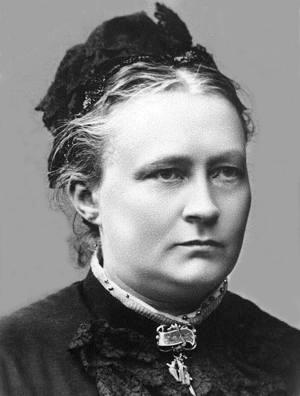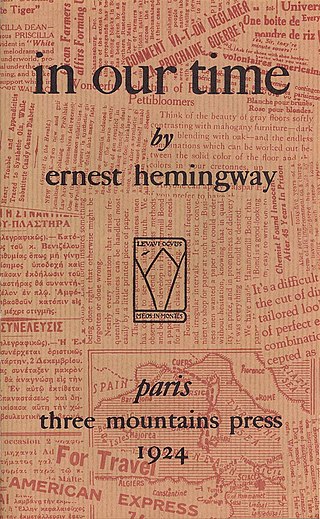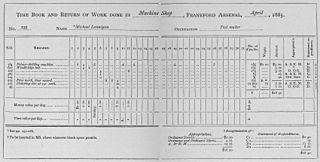Related Research Articles

The Martian Chronicles is a science fiction fix-up novel, published in 1950, by American writer Ray Bradbury that chronicles the exploration and settlement of Mars, the home of indigenous Martians, by Americans leaving a troubled Earth that is eventually devastated by nuclear war.

Dorothy Day was an American journalist, social activist and anarchist who, after a bohemian youth, became a Catholic without abandoning her social activism. She was perhaps the best-known political radical among American Catholics.

Stanley Earl Kramer was an American film director and producer, responsible for making many of Hollywood's most famous "message films" and a liberal movie icon. As an independent producer and director, he brought attention to topical social issues that most studios avoided. Among the subjects covered in his films were racism, nuclear war, greed, creationism vs. evolution, and the causes and effects of fascism. His other films included High Noon, The Caine Mutiny, and Ship of Fools (1965).

Set construction is the process undertaken by a construction manager to build full-scale scenery, as specified by a production designer or art director working in collaboration with the director of a production to create a set for a theatrical, film, or television production. The set designer produces a scale model, scale drawings, paint elevations, and research about props, textures, and so on. Scale drawings typically include a ground plan, elevation, and section of the complete set, as well as more detailed drawings of individual scenic elements which, in theatrical productions, may be static, flown, or built onto scenery wagons. Models and paint elevations are frequently hand-produced, though in recent years, many Production Designers and most commercial theatres have begun producing scale drawings with the aid of computer drafting programs such as AutoCAD or Vectorworks.

Red Nightmare is the best-known title of the 1962 Armed Forces Information Film (AFIF) 120, Freedom and You. Made for the Department of Defense, the short film was produced to mold public opinion against communism. The film was later released to American television and as an educational film to American schools under the Red Nightmare title.

Gandy dancer is a slang term used for early railroad workers in the United States, more formally referred to as section hands, who laid and maintained railroad tracks in the years before the work was done by machines. The British equivalents of the term gandy dancer are navvy, originally builders of canals, or inland navigations, for builders of railway lines, and platelayer for workers employed to inspect and maintain the track. In the Southwestern United States and Mexico, Mexican and Mexican-American track workers were colloquially traqueros.

Minna Canth was a Finnish writer and social activist. Canth began to write while managing her family draper's shop and living as a widow raising seven children. Her work addresses issues of women's rights, particularly in the context of a prevailing culture she considered antithetical to permitting expression and realization of women's aspirations. The Worker's Wife and The Pastor's Family are her best known plays, but the play Anna Liisa is the most adapted to the films and operas. In her time, she became a controversial figure, due to the asynchrony between her ideas and those of her time, and in part due to her strong advocacy for her point of view.

In Our Time is the title of Ernest Hemingway's first collection of short stories, published in 1925 by Boni & Liveright, New York, and of a collection of vignettes published in 1924 in France titled in our time. Its title is derived from the English Book of Common Prayer, "Give peace in our time, O Lord".

A supervisor, or lead, is the job title of a lower-level management position and role that is primarily based on authority over workers or a workplace. A supervisor can also be one of the most senior on the employees at a place of work, such as a professor who oversees a Ph.D. dissertation. Supervision, on the other hand, can be performed by people without this formal title, for example by parents. The term supervisor itself can be used to refer to any personnel who have this task as part of their job description.
Ivan is a 1932 Soviet drama film directed by Aleksandr Dovzhenko. After the critical lambasting of his film Earth by the Soviet authorities, Dovzhenko returned with a more popular iteration of its main motifs. Much like Earth, Ivan concerns itself with the natural rhythms of country life, disrupted by the beat of looming industrialisation.

Winning Your Wings is a 1942 Allied propaganda film of World War II produced by Warner Bros. Studios for the US Army Air Forces, starring James Stewart. It was aimed at young men who were thinking about joining the Air Force. Members of the production crew would later form the core of the First Motion Picture Unit.

Ten is a 2002 Iranian docufiction film starring Mania Akbari and Amina Maher. It was released with Abbas Kiarostami credited as the director; however, his role in the film and the source of the footage have been disputed by Akbari since 2020.
"The Silent Men" is a short story written in 1957. It is the third short story published in the volume Exile and the Kingdom by Albert Camus.

The Victors is a 1963 British-American war film written, produced and directed by Carl Foreman. He called it a "personal statement" about the futility of war—both victor and vanquished are losers.

The Sandwich Man is a 1983 Taiwanese film. The film project was proposed and put into plan by Hsiao Yeh (小野)and Wu Nien-jen (吳念真). It was directed by Hou Hsiao-hsien and two other then-new directors, Tsang Jong-cheung (曾壯祥) and Wan Jen (萬仁). The script by Wu Nien-jen is based on three stories from Huang Chun-ming's short stories collection The Taste of Apples. The three stories together vividly portray the society of Taiwan during the Cold War period when it underwent industrialization with help from the United States. The film is regarded as a hallmark at the beginning of Taiwanese New Cinema.

Since the Industrial Revolution, participation of women in the workforce outside the home has increased in industrialized nations, with particularly large growth seen in the 20th century. Largely seen as a boon for industrial society, women in the workforce contribute to a higher national economic output as measure in GDP as well as decreasing labor costs by increasing the labor supply in a society.

The 1933 Griffith Park Fire was a brush fire that occurred on October 3, 1933, in Griffith Park in Los Angeles, resulting in the deaths of at least 29 civilians who were trying to fight the fire.

Captain Henry Metcalfe was an officer in the United States Army Ordnance Corps, inventor and early organizational theorist, known for his 1873 invention of a detachable magazine for small arms, for his work on modern management accounting, the development of the "time card" and his theory on the role of middle management.
In World War II, many working-age men were drafted into the armed forces to fight abroad. During this time, women were drafted in to take their places in factories and construction. When WWII ended, most men came home; while many were unable or unwilling to return to their old jobs, there was not the same urgency for women to be in the workplace. As such, society had to deal with new attitudes and expectations regarding women’s employment.

A time book is a mostly outdated accounting record, that registered the hours worked by employees in a certain organization in a certain period. These records usually contain names of employees, type of work, hours worked, and sometimes wages paid.
References
- ↑ Greenfield, Rebecca (2011-02-11). "'Supervising Women Workers': Management Techniques From 1944". The Atlantic. Retrieved 2019-03-26.